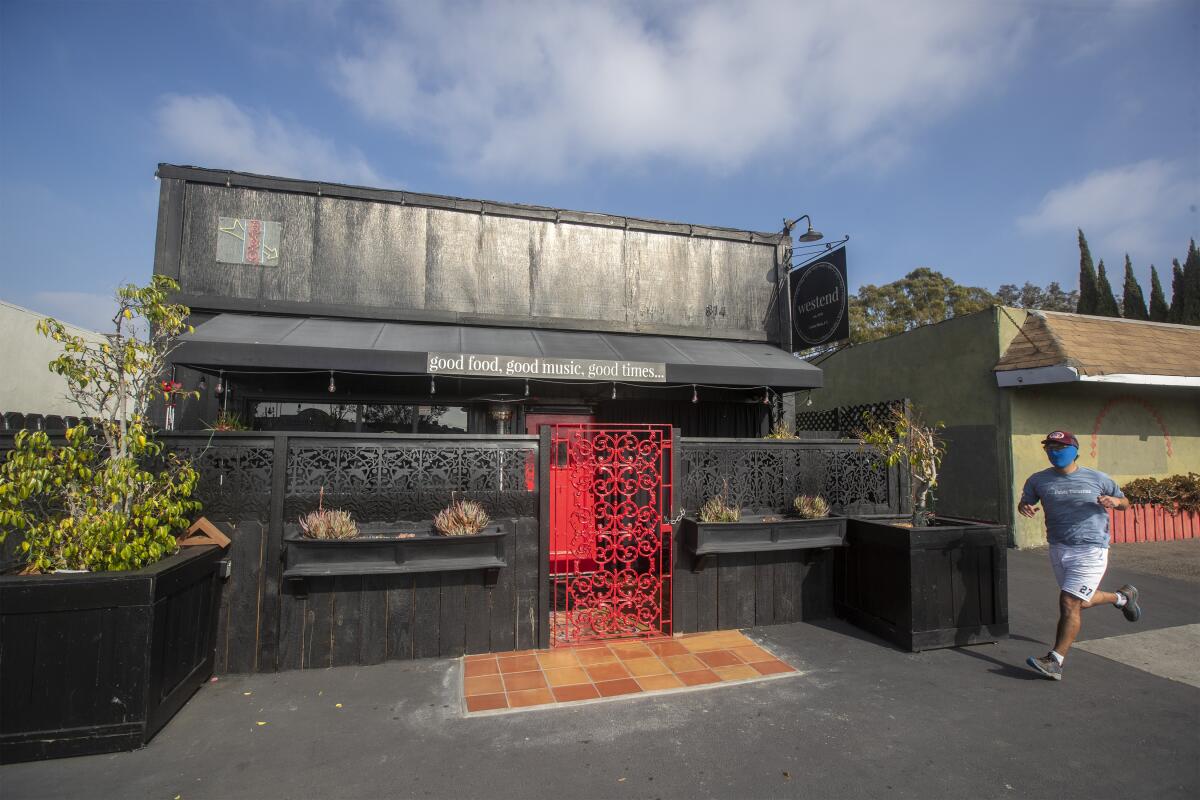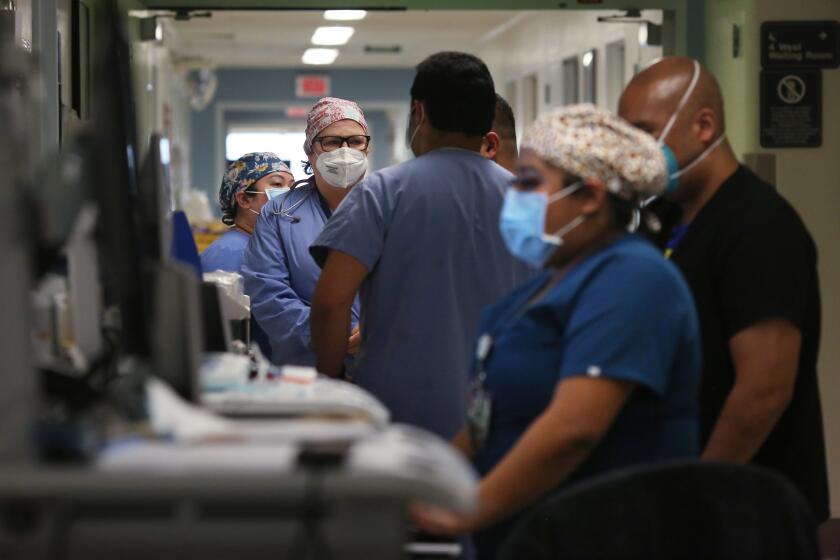Orange County bar owner faces criminal charges for operating during coronavirus pandemic

A Costa Mesa bar owner has become the first Orange County proprietor to face a criminal charge for illegally operating during the COVID-19 pandemic.
Roland Michael Barrera, 47, who owns the Westend Bar, was charged with a misdemeanor after repeatedly failing to mandate that customers and employees wear face coverings, declining to enforce social distancing requirements and continuing to operate during restricted hours, the Orange County district attorney’s office said Thursday.
Authorities have responded to the bar several times since November, when the state’s overnight stay-at-home order was issued, mandating that all nonessential businesses close between 10 p.m. and 5 a.m.
The bar continued to operate past curfew, at times hosting up to 70 customers, who were not required to keep socially distanced or wear masks, prosecutors said.
On Dec. 12, a Costa Mesa police officer responded to the bar at about 11 p.m. The bar’s manager, Luisza Giulietta Mauro, grabbed the officer to prevent him from entering, authorities allege.
Mauro, 26, was charged with a misdemeanor count of resisting a police officer.
If convicted, both Mauro and Barrera face a maximum sentence of a year in jail.
L.A. County health agency tells EMTs not to transport by ambulance those who have virtually no chance at recovery.
However, prosecutors said they are hopeful that if the defendants do not commit new violations, their cases can be resolved through education rather than jail time.
Bars that don’t serve food have been closed for months in Orange County. Those like Westend that served meals could largely operate outdoors until last month, when Southern California’s regional ICU bed availability dropped below 15%, triggering the closure of personal care services and all outdoor dining.
Barrera and Mauro could not immediately be reached for comment on Monday. The voicemail boxes for the business and Barrera’s cellphone were full.
Barrera has been a controversial figure in Costa Mesa. He operated a nightclub, Maison, and a bar, Casa, that prompted frequent complaints from neighbors and code enforcement actions from the city. In 2015, he was ordered to pay a hefty fine for his role in recruiting investors into a Ponzi scheme.
The state’s limitations on businesses to combat a surge in coronavirus cases have drawn widespread criticism from restaurant and bar owners, many of who say the restrictions have unfairly impacted them. Some establishments, like Basilico’s Pasta e Vino in Huntington Beach, have been outspoken about flouting mandated closures and other regulations since the beginning of the pandemic.
Prosecutors have declined to file charges in nearly two dozen cases involving county businesses allegedly operating illegally during the pandemic.
Instead, they have focused on “an education and outreach philosophy” regarding the health orders, district attorney officials said.
One of the largest hospitals in San Bernardino County ran out of ICU space two weeks ago amid an onslaught of coronavirus cases across Southern California.
Orange County Dist. Atty. Todd Spitzer said in a statement that the Westend bar had multiple opportunities to take corrective action but declined to do so. He called the continued defiance a “slap in the face to hard-working business owners who are trying to do the right thing” in increasingly challenging times.
As tens of thousands of others have either closed their doors or managed to comply with the coronavirus restrictions, it is unacceptable for one business to “continue to operate without even attempting to institute any mitigating measures that are designed to save lives,” Spitzer said in the statement.
Hannah Fry is staff writer with the Los Angeles Times.
All the latest on Orange County from Orange County.
Get our free TimesOC newsletter.
You may occasionally receive promotional content from the Daily Pilot.






